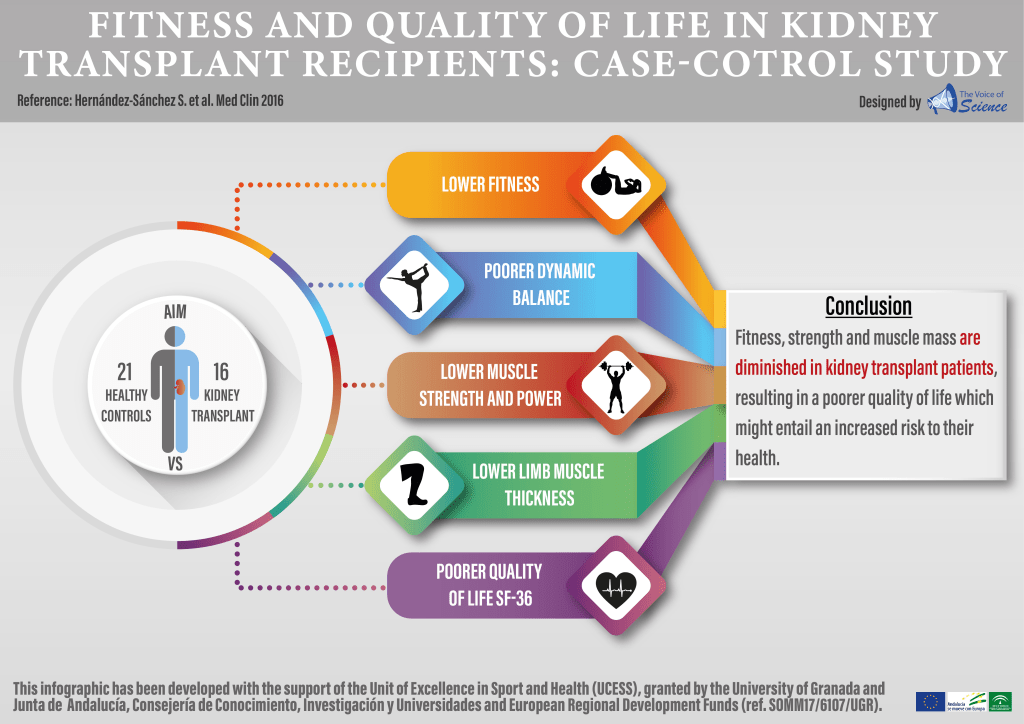Fitness, strength and muscle mass are diminished in kidney transplant patients, resulting in a poorer quality of life which might entail an increased risk to their health.
We analyzed the levels of fitness, muscle structure and quality of life of adults after kidney transplant and healthy adults.
Patients and methods: A total of 16 kidney transplant patients and 21 healthy controls performed several fitness test, isokinetic evaluation of knee flexion and extension and ultrasonography muscle thickness assessment. They also completed the quality of life questionnaire SF-36.
Physical fitness, muscle structure and quality of life of the kidney transplant recipients were significantly poorer than the controls. The transplant patients performed less well in the “get up and go” and “sit to stand” test (p < .001) as well as in assessments of muscle structure, strength and power. The patients had a poorer score in their quality of life assessments, differing from the controls in domains of physical function, physical role, general health and social function (p < .001).
Firman este artículo, por parte:
Sonsoles Hernández Sánchez a,∗, Juan J. Carrerob, David García López c, Juan Azael Herrero Alonso c,d, Héctor Menéndez Alegre c,d y Jonatan R. Ruiz. a
a Grupo de Investigación PROmoting FITness and Health through physical activity (PROFITH), Departamento de Educación Física y Deportiva, Facultad de Ciencias del Deporte, Universidad de Granada, Granada, España
b Renal Medicine and Baxter Novum, CLINTEC, Karolinska Institutet, Estocolmo, Suecia
c Laboratorio de Fisiología, Facultad de Ciencias de la Salud, Universidad Europea Miguel de Cervantes, Valladolid, España
d Centro de Investigación en Discapacidad Física, Valladolid, España




